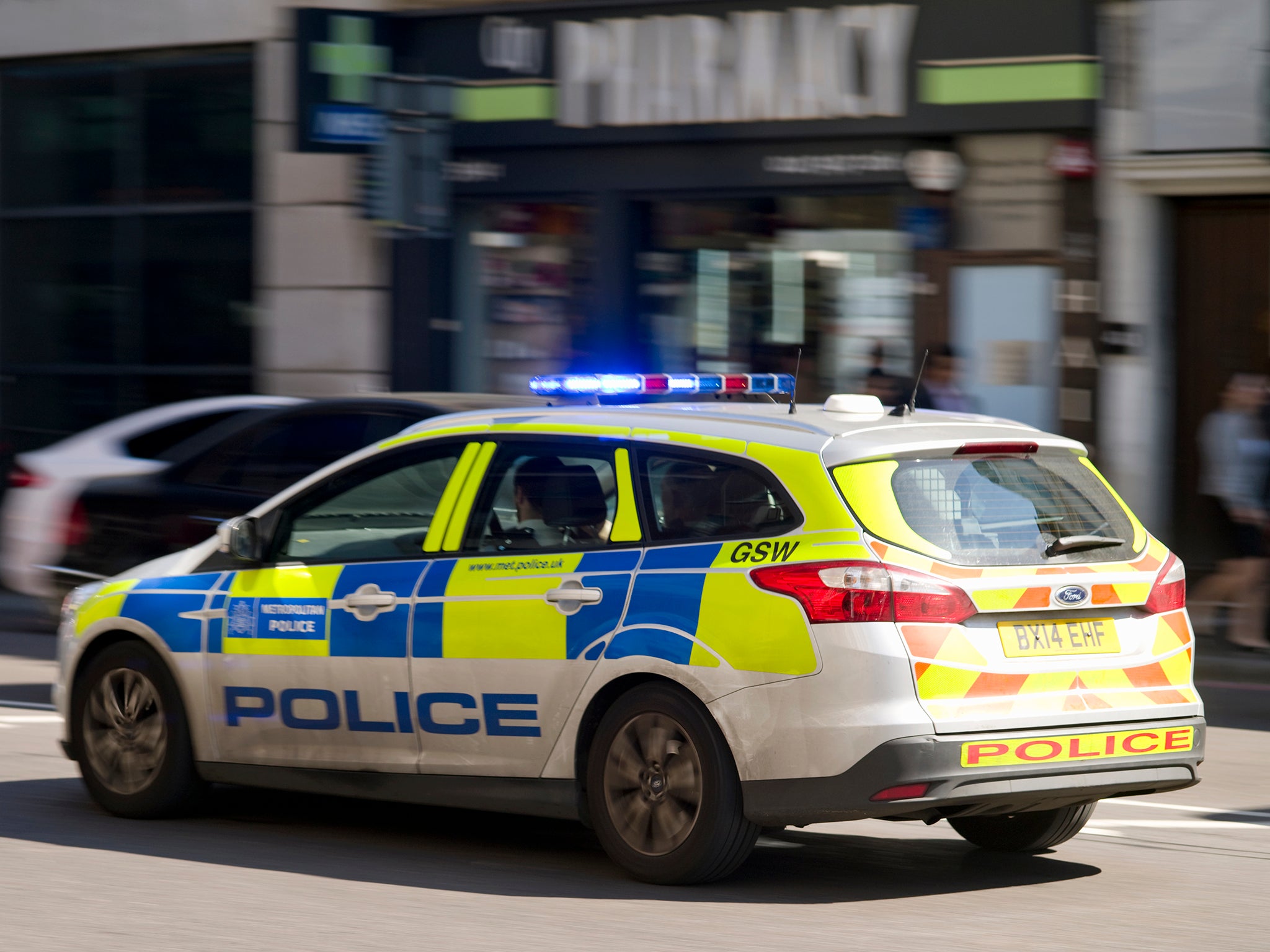Police drivers to get increased protection from prosecution over fatal crashes under proposed law
Home Office says only 'justified and proportionate' driving would be protected under new legal test

Police drivers involved in fatal crashes will be given increased protection from prosecution under a new law proposed by the government.
Prosecutors currently judge officers by the same driving standards as members of the public, but the Home Office wants them to recognise police training and the “tactics they may have to employ to respond to emergencies and pursue criminals”.
Sajid Javid plans to introduce a new legal test to give officers “greater confidence” to chase suspects, following claims that robbers riding mopeds were getting away because officers feared prosecution if they crashed.
The home secretary said: “It’s vital police officers feel confident and protected when pursing suspects on the roads or responding to an emergency.
“It’s also crucial that we send a clear message that criminals – whether in cars or on mopeds - cannot escape arrest simply by driving recklessly.
“These proposed changes will strike the right balance – giving trained officers the confidence they need to fight crime effectively and ensure our roads are safe.”
But the Metropolitan Police has already released footage showing its drivers ramming mopeds as part of a “tactical contact” strategy, and no police officers have been convicted of a criminal offence over recent deaths in pursuits.
Some crashes have resulted in misconduct proceedings, including those that saw four officers cleared over a chase that ended in the death of 18-year-old Henry Hicks.
Diane Abbott, Labour’s shadow home secretary, called the proposals “worrying” and said the evidence base for the change was unclear.
“No-one is above the law and in this country we operate through policing by consent,” she added.
“Removing police officers from investigation if their driving has been reckless threatens to undermine both of these key principles of policing in this country, with potentially very negative consequences.
“The home secretary has not made the argument about lawful police pursuits which have been abandoned, or about police officers unnecessarily investigated.”
The Home Office said the proposals would leave officers “better protected from the risk of lengthy investigation and potential prosecution” after crashes, but stressed that they would still be investigated.
A spokesperson said police drivers currently “rely on the discretion of the Independent Office for Police Conduct (IOPC) and the Crown Prosecution Service (CPS) to avoid misconduct investigations and criminal prosecution”.
“Any changes will make it clear that officers should not be held accountable for the driving of a suspected criminal attempting to avoid arrest, providing the pursuit is justified and proportionate,” he added.
“The move follows a public consultation which saw the overwhelming majority of respondents back the proposals.”
The new legal test would mean an officer’s driving is compared to that of a “competent and careful police driver” rather than a member of the public.
It would apply to all trained response drivers and cover them both while pursuing criminals and responding to emergencies.
The government is also planning to review current exemptions to traffic laws for the emergency services to “ensure they remain fit for purpose”.
The Police Federation, which represents rank-and-file officers in England and Wales, has been campaigning for the change for years and called the current law “grossly unfair”.
Chair John Apter said: “This is a positive step and something we have long been campaigning for. Sadly, it comes too late for many police officers who have been investigated and had their lives turned upside-down, facing lengthy court proceedings for simply doing the job they have been trained to do.

“It is important that when police officers are required to use their training to protect society, they can do so with the confidence that the law is on their side.”
In 2017-18 there were 29 road traffic fatalities involving “police contact”, including 17 related to pursuits and eight fatalities resulting from emergency response incidents.
The Independent Office for Police Conduct (IOPC) is investigating several incidents, including four separate fatal crashes in a single week in January, and two others in February.
One saw a young couple killed while being chased by police in west London. It later emerged that they were not present at the burglary that sparked the pursuit.
In the second crash in February, an elderly couple died after their car collided with a van being chased by police in south-east London.
In March, a woman was killed and several others were injured after their vehicles collided with a car being pursued.
IOPC statistics show that only two officers were prosecuted for pursuit-related offences and none were convicted over a five-year period involving nearly 100 independent investigations into death or serious injury caused by crashes involving police vehicles.
